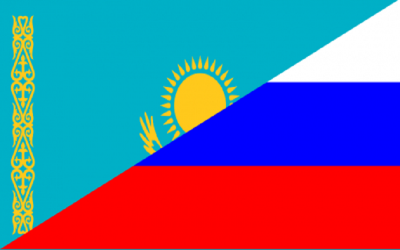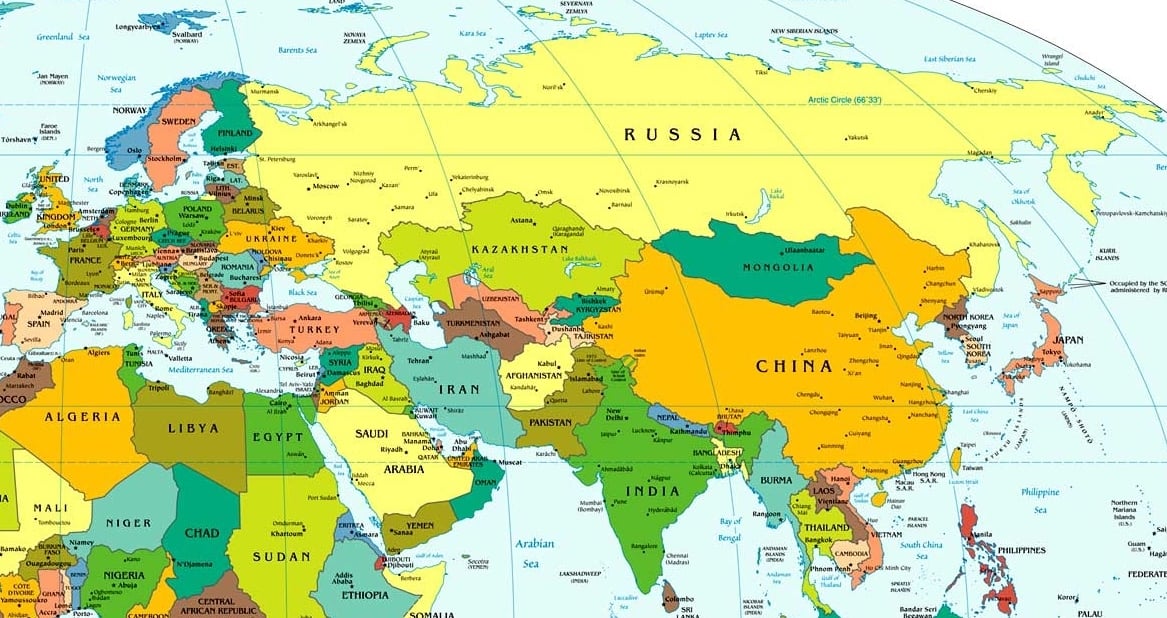Eurasian Integration and the Geopolitics of the Russia-Kazakhstan Relationship

The long-standing plan to turn Russia against Kazakhstan, or vice versa, does not go out of the heads of security opponents in the Eurasian space. Current events in Belarus are also heating up this topic. After all, Kazakhstan, geographically, like Belarus, is not just any other country, but a huge geopolitical node that connects huge regions. Therefore, we should pay more attention right now to maintaining stability around Kazakhstan.
Since the 1990s, attempts have been made to provoke a quarrel between Kazakhstan and Russia, with the help of Moscow’s alleged territorial claims to this southern neighbor, and above all, the issue of the territories of Northern Kazakhstan. This topic was actively developed by a number of marginal Russian radicals who directly made claims to Kazakhstan, but, unfortunately, the authorities then did not reach them. In the following years, these radicals were fairly reliably deactivated, and some were directly sent to prison.
However, the topic of Russia’s “claims” to Kazakhstan over its Northern territories, which are “native Russian”, has not gone away. Moreover, it was adopted by American specialists who pursue the same goal: the collapse of Russian-Kazakh relations and the Republic of Kazakhstan itself. After that, as the opponents of Russian-Kazakh integration assume, it will be quite easy to make a reliable barrier between the Russian Federation and the whole of Central Asia out of the ruined Kazakhstan.
The US is pursuing a destructive policy not only in relation to the prospects of the Russia-Kazakhstan pair, but also seeks to make cracks in Moscow’s relations with all post-Soviet capitals. And not only with them, but also on a wider global spectrum. Everyone remembers that when Hillary Clinton was Secretary of State, she clearly stated that the United States will not allow the creation of the Eurasian economic Union (EEU), as well as the development of any form of integration between the former Soviet republics at a new historical stage.
In this sense, normal relations between Russia and Kazakhstan are an insurmountable obstacle to this plan, and, accordingly, unacceptable for Washington. Thus, the artificial maintenance of a territorial conflict that is “smoldering”, in the opinion of our opponents, becomes one of the main tools.
However, such a plan has almost no chance of practical implementation, since the thesis promoted by American experts about Russia’s territorial claims to Northern Kazakhstan has nothing in common with reality. Russia unequivocally supports the existing borders and territorial integrity of the countries of the region. If we talk about relations between the Russian Federation and Kazakhstan, it is a strategic partnership, in which the above-mentioned issues are completely absent.
Kazakhstan is the main initiator of the creation of the EEU, which in itself indicates the state’s views on Eurasian integration, where there is no place for discussions about border issues. The EEU is by definition an economic, not a political structure, so it is impossible to throw into it destructive topics that are not related to the daily progressive work. This initial formulation of the issue allows Russia and Kazakhstan to actively develop within the framework of the EEU, where, while preserving state borders and sovereignty, the possibility of economic growth is guaranteed for all participating countries.
If you look at Russian-Kazakh relations in the historical aspect, you can see how highly Moscow has valued for centuries such an enduring value as the commonality of the Russian and Kazakh peoples, both as part of the Russian Empire and the USSR. For this fundamental, unchangeable reason, Moscow still pays special attention to the prospects of relations with Nur-Sultan in the new geopolitical conditions. Conditions are changing, but the foundation for the Russian-Kazakh alliance remains. This formula will remain unchanged in the future.
However, it should be borne in mind that American strategists will not leave Russian-Kazakh relations alone and will make further attempts to hinder their development, including on the Eurasian scale as a whole. The destabilization of the socio-economic and political situation in the entire post-Soviet field, in order to strengthen the presence of the United States itself, remains one of the main challenges for the space of our integration, as well as for other key geopolitical regions of the world.
The main guarantee against such threats is the steady strengthening of the economies of all the EAEU countries, with the further expansion of the influence of this non-political organization. We can only live better together. And our mutual economic success will leave no room for any political insinuations, no matter who tries to export them here and from where.
*
Note to readers: please click the share buttons above or below. Forward this article to your email lists. Crosspost on your blog site, internet forums. etc.
Featured image is from OneWorld


